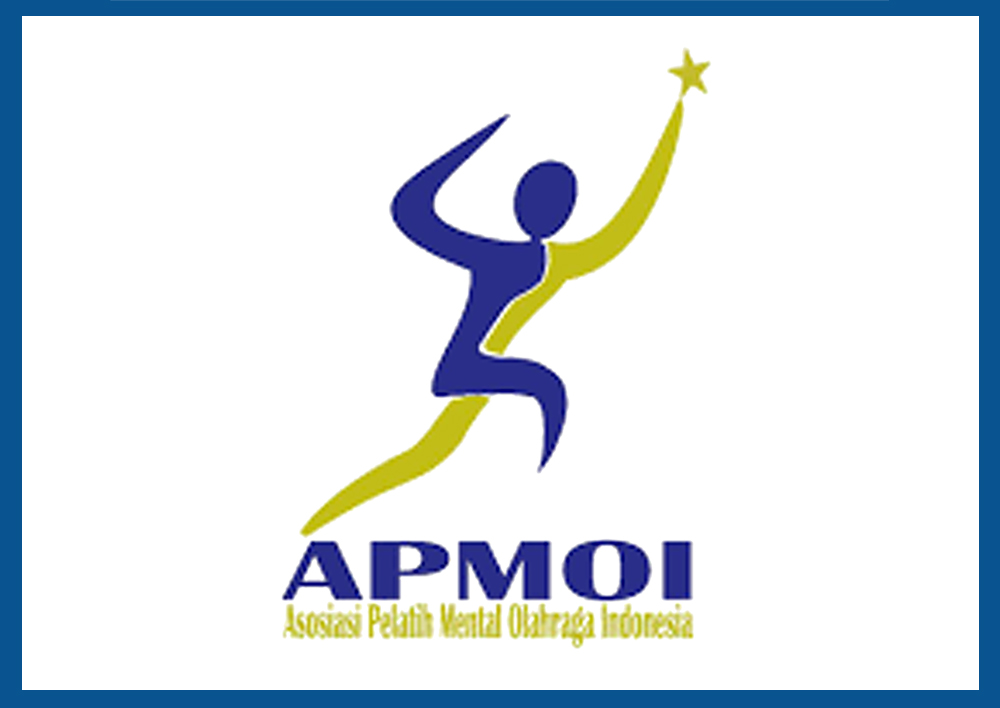Exploring the impact of aerobic exercise on sleep quality in older adults: A systematic review
Abstract
Problem: Sleep disturbances are common and impact health, yet the most effective exercise modalities for improving sleep quality remain unclear. This study aims to evaluate the effectiveness of aerobic and resistance training in enhancing sleep quality and related health outcomes. Purpose: The purpose of this study is to examine the effectiveness of various exercise modalities, including aerobic and resistance training, in improving sleep quality and related health indices, and to determine the most helpful techniques for managing sleep disruptions in old. Methods: This study utilized a systematic literature review approach, gathering and analyzing scientific articles on the effects of exercise on athlete immune function. Articles were sourced from Scopus using search terms such as "aerobic exercise" OR "aerobic training" OR "cardiovascular exercise" OR "endurance exercise" AND "sleep quality" OR "sleep disturbance" OR "sleep improvement" OR "sleep duration" OR "sleep patterns" OR "insomnia" AND "elderly" OR "older adults" OR "aging population" OR "senior citizens" OR "aged" AND "effect" OR "impact" OR "outcome" OR "influence" with a focus on studies published within the past five years that evaluate exercise interventions on immune enhancement in athletes. After collecting relevant articles, descriptive analysis was conducted to identify consistent patterns and findings. Results: Aerobic exercise was consistently the most effective intervention for improving overall sleep quality, including sleep efficiency, duration, and deep sleep, along with cognitive function and inflammation markers. Resistance and combined training also demonstrated significant benefits, with resistance training enhancing sleep onset latency and duration. These findings highlight exercise as a versatile, non-pharmacological approach to improving sleep health in diverse populations. Aerobic exercise was consistently the most effective intervention for improving overall sleep quality, including sleep efficiency, duration, and deep sleep, along with cognitive function and inflammation markers. Resistance and combined training also demonstrated significant benefits, with resistance training enhancing sleep onset latency and duration. These findings highlight exercise as a versatile, non-pharmacological approach to improving sleep health in diverse populations. Conclusion: This systematic study suggests that aerobic exercise improves sleep quality in older persons. Sleep disturbances decreased and sleep efficiency, total sleep time, and sleep start latency improved in multiple studies.
Downloads
References
Alfini, A. J., Won, J., Weiss, L. R., Nyhuis, C. C., Shackman, A. J., Spira, A. P., & Smith, J. C. (2020). Impact of exercise on older adults’ mood is moderated by sleep and mediated by altered brain connectivity. Social Cognitive and Affective Neuroscience, 15(11), 1238–1251. https://doi.org/10.1093/scan/nsaa149
Amalia, L., Fitriana, L. A., Darmawati, I., Nasution, L. A., Anggadiredja, K., Setiawan, I., Suherman, A., Novan, N. A., Komariyah, L., & Adnyana, I. K. (2021). The Effect of Aerobic Exercises on Estradiol Plasma, Quality of Sleep, and Cognitive Function in Menopausal Women. Malaysian Journal of Medicine and Health Sciences, 17, 28–32. https://www.scopus.com/inward/record.uri?eid=2-s2.0-85123689114&partnerID=40&md5=3e275169addb0f7babbda02f00f1fda7
Atef, H., & Abdeen, H. (2021). Effect of exercise on sleep and cardiopulmonary parameters in patients with pulmonary artery hypertension. Sleep and Breathing, 25(4), 1953–1960. https://doi.org/10.1007/s11325-020-02286-9
Atef, H., Helmy, Z., & Farghaly, A. (2020). Effect of different types of exercise on sleep deprivation and functional capacity in middle aged patients after coronary artery bypass grafting. Sleep Science, 13(2), 113–118. https://doi.org/10.5935/1984-0063.20190136
Baron, P., Hermand, É., Bourlois, V., Pezé, T., Aron, C., Lombard, R., & Hurdiel, R. (2023). Effect of Aerobic Exercise Training on Sleep and Core Temperature in Middle-Aged Women with Chronic Insomnia: A Randomized Controlled Trial. International Journal of Environmental Research and Public Health, 20(8). https://doi.org/10.3390/ijerph20085452
Brown, A. M. C., & Gervais, N. J. (2020). Role of ovarian hormones in the modulation of sleep in females across the adult lifespan. Endocrinology, 161(9), bqaa128.
Cassim, T. Z., McGregor, K. M., Nocera, J. R., García, V. V, Sinon, C. G., Kreuzer, M., & García, P. S. (2022). Effects of exercise on the sleep microarchitecture in the aging brain: A study on a sedentary sample. Frontiers in Systems Neuroscience, 16. https://doi.org/10.3389/fnsys.2022.855107
El Refaey, B. H., Ali, O. I., & Elwakel, H. H. (2020). Effect of aerobic exercises on sleep and hormonal levels in elderly with chronic primary insomnia: A randomized controlled trial. Fizjoterapia Polska, 20(1), 60–64. https://www.scopus.com/inward/record.uri?eid=2-s2.0-85089113291&partnerID=40&md5=718e6df15ad1bf01ff7999f62503d06e
Gao, X., Qiao, Y., Chen, Q., Wang, C., & Zhang, P. (2024). Effects of different types of exercise on sleep quality based on Pittsburgh Sleep Quality Index in middle-aged and older adults: a network meta-analysis. Journal of Clinical Sleep Medicine, 20(7), 1193–1204. https://doi.org/10.5664/jcsm.11106
Garbarino, S., Lanteri, P., Prada, V., Falkenstein, M., & Sannita, W. G. (2020). Circadian rhythms, sleep, and aging. Journal of Psychophysiology.
Gupta, S., Bansal, K., & Saxena, P. (2022). A clinical trial to compare the effects of aerobic training and resistance training on sleep quality and quality of life in older adults with sleep disturbance. Sleep Science, 15(2), 188–195. https://doi.org/10.5935/1984-0063.20220040
Kashyap, N. (2023). The Power of Aerobic Exercises. Chief Editor Prof. Rajesh Kumar, 29.
Kramer, A. (2020). An overview of the beneficial effects of exercise on health and performance. Physical Exercise for Human Health, 3–22.
Li, J., Vitiello, M. V, & Gooneratne, N. S. (2022). Sleep in normal aging. Sleep Medicine Clinics, 17(2), 161–171.
Mahalakshmi, A. M., Ray, B., Tuladhar, S., Bhat, A., Bishir, M., Bolla, S. R., Yang, J., Essa, M. M., Chidambaram, S. B., & Guillemin, G. J. (2020). Sleep, brain vascular health and ageing. Geroscience, 42, 1257–1283.
Miyazaki, R., Ayabe, M., Kumahara, H., Morimura, K., & Inukai, Y. (2021). Effects of light-to-moderate intensity aerobic exercise on objectively measured sleep parameters among community-dwelling older people. Archives of Gerontology and Geriatrics, 94. https://doi.org/10.1016/j.archger.2020.104336
Mukherjee, U., Sehar, U., Brownell, M., & Reddy, P. H. (2024). Mechanisms, consequences and role of interventions for sleep deprivation: Focus on mild cognitive impairment and Alzheimer’s disease in elderly. Ageing Research Reviews, 100, 102457.
Panagiotou, M., Michel, S., Meijer, J. H., & Deboer, T. (2021). The aging brain: sleep, the circadian clock and exercise. Biochemical Pharmacology, 191, 114563.
Sarıtoy, A., & Usgu, S. (2023). The effect of aerobic exercises of different intensities on anxiety, cigarette addiction, sleep quality, and quality of life in former smokers. Irish Journal of Medical Science, 192(3), 1505–1516. https://doi.org/10.1007/s11845-022-03065-z
Seol, J., Fujii, Y., Inoue, T., Kitano, N., Tsunoda, K., & Okura, T. (2021). Effects of Morning Versus Evening Home-Based Exercise on Subjective and Objective Sleep Parameters in Older Adults: A Randomized Controlled Trial. Journal of Geriatric Psychiatry and Neurology, 34(3), 232–242. https://doi.org/10.1177/0891988720924709
Seol, J., Park, I., Kokudo, C., Zhang, S., Suzuki, C., Yajima, K., Satoh, M., Tokuyama, K., & Okura, T. (2021). Distinct effects of low-intensity physical activity in the evening on sleep quality in older women: A comparison of exercise and housework. Experimental Gerontology, 143. https://doi.org/10.1016/j.exger.2020.111165
Song, D., Yu, D., Liu, T., & Wang, J. (2024). Effect of an Aerobic Dancing Program on Sleep Quality for Older Adults With Mild Cognitive Impairment and Poor Sleep: A Randomized Controlled Trial. Journal of the American Medical Directors Association, 25(3), 494–499. https://doi.org/10.1016/j.jamda.2023.09.020
Szuhany, K. L., Sullivan, A. J., Gills, J. L., & Kredlow, M. A. (2024). The impact of exercise interventions on sleep in adult populations with depression, anxiety, or posttraumatic stress: review of the current evidence and future directions. Journal of Behavioral Medicine, 1–18.
Taillard, J., Gronfier, C., Bioulac, S., Philip, P., & Sagaspe, P. (2021). Sleep in normal aging, homeostatic and circadian regulation and vulnerability to sleep deprivation. Brain Sciences, 11(8), 1003.
Tseng, T.-H., Chen, H.-C., Wang, L.-Y., & Chien, M.-Y. (2020). Effects of exercise training on sleep quality and heart rate variability in middle-aged and older adults with poor sleep quality: A randomized controlled trial. Journal of Clinical Sleep Medicine, 16(9), 1483–1492. https://doi.org/10.5664/jcsm.8560
Zhou, Y., Wu, W., Zou, Y., Huang, W., Lin, S., Ye, J., & Lan, Y. (2022). Benefits of different combinations of aerobic and resistance exercise for improving plasma glucose and lipid metabolism and sleep quality among elderly patients with metabolic syndrome: a randomized controlled trial. Endocrine Journal, 69(7), 819–830. https://doi.org/10.1507/endocrj.EJ21-0589
Copyright (c) 2024 Jurnal Patriot

This work is licensed under a Creative Commons Attribution-ShareAlike 4.0 International License.



_(700_x_400_mm)_(3)_.png)


_(700_x_400_mm)_1.png)



